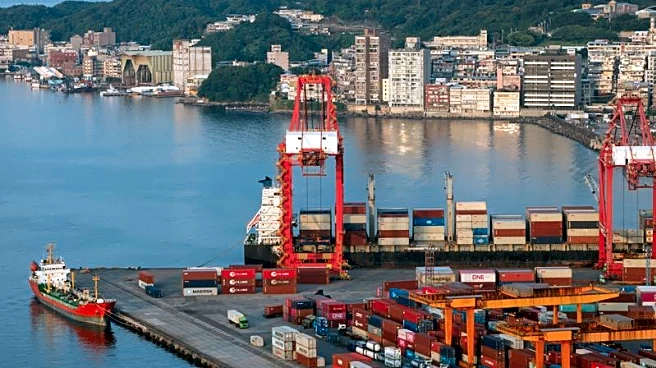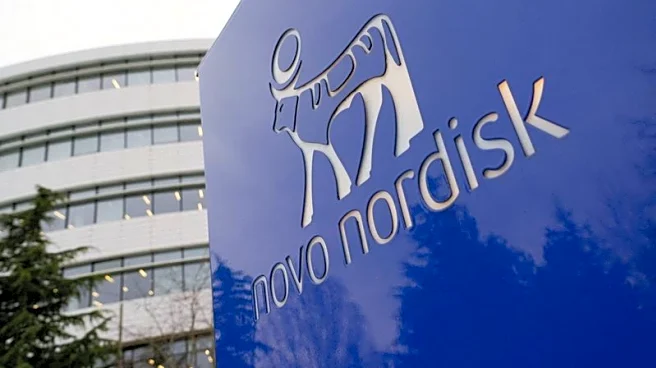What's Happening?
Tim Davie has resigned from his position as the Director General of the BBC after a 20-year career with the corporation. His resignation follows criticism regarding a Panorama documentary that allegedly misled viewers by editing a speech by President
Trump. Davie, who became the BBC's 17th director general in June 2020, had previously emphasized his commitment to high-quality content and impartiality. During his tenure, he focused on negotiating with the government over the future of the licence fee. Davie initially joined the BBC from Pepsi in 2005 and held various roles, including director of the Marketing, Communications & Audiences division and director of the Audio & Music division.
Why It's Important?
Davie's resignation is significant as it highlights ongoing challenges within the BBC regarding editorial standards and impartiality. The controversy over the Panorama documentary underscores the scrutiny media organizations face in accurately representing political figures and events. This development may impact the BBC's relationship with the government, particularly concerning the licence fee negotiations. The resignation also opens up discussions about leadership and accountability within major media institutions, potentially influencing public trust and the BBC's future direction.
What's Next?
The BBC will need to appoint a new Director General, which could lead to shifts in its strategic priorities and approach to content creation. The organization may also face increased pressure to review its editorial processes to prevent similar controversies. Stakeholders, including government officials and media watchdogs, may closely monitor the BBC's actions to ensure transparency and accountability. The outcome of these developments could affect the BBC's reputation and its role in the global media landscape.
Beyond the Headlines
This resignation may prompt broader discussions about media ethics and the role of public broadcasters in shaping public perception. The incident raises questions about the balance between editorial freedom and responsibility, especially in politically charged contexts. It could also influence how other media organizations handle similar situations, potentially leading to industry-wide changes in editorial standards and practices.
















